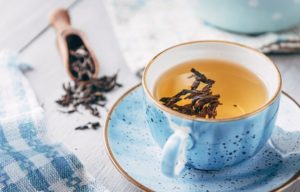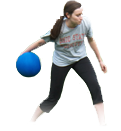
6 Teas to Stock Up On and Their Health Benefits
For almost every ailment you can name, there’s probably a tea out there that suggests it’s the answer to your woes. Many popular brands have health claims stamped across them. However, it can be hard to know which teas make good on their promises.
Whether you’re struggling to fall asleep or experiencing nausea and motion sickness, Bonnie Taub-Dix, RD, helps explain the possible health benefits of six popular teas.
Chamomile: Best for a Good Night’s Sleep
Chamomile tea is perhaps most popular as a sleep aid, according to Taub-Dix. While the jury is still out on this claim, chamomile is free of caffeine and rich in the bioflavonoid apigenin. When apigenin binds to specific receptors in the brain, it can have sedative effects. This may reduce stress and promote sleep. There’s not yet a lot of research to verify how well this sedating effect extends to chamomile tea, but a small June 2017 study in the Journal of Education and Health Promotion showed that chamomile improved sleep quality in elderly people in nursing homes.
Another study, also very small, suggests that chamomile tea could potentially improve your overall quality of sleep, too. In a February 2016 paper published in the Journal of Advanced Nursing, researchers found that women who drank chamomile tea spent more time asleep than lying awake in bed.
Peppermint: Best for Aiding Digestion
If you have an upset stomach, make peppermint tea your go-to. For those who struggle with irritable bowel syndrome (IBS), peppermint may be an effective short-term treatment for related symptoms, according to a July 2014 review published in the Journal of Clinical Gastroenterology. After reviewing nine studies with 726 patients, researchers found peppermint oil improved IBS symptoms. However, this tea is not a long-term treatment, the researchers point out. Also, Taub-Dix notes, if you suffer from acid reflux, ginger or chamomile may be better choices. Peppermint could aggravate that condition.
Ginger Tea: Best for Nausea
Those who struggle with motion sickness and nausea may benefit from a warm cup of ginger tea, according to Taub-Dix. Researchers have long studied ginger’s potential as a treatment for conditions such as pregnancy or chemotherapy-induced nausea and vomiting. And although larger and well-controlled studies are still needed, a March 2016 review published in Integrative Medicine Insights suggests ginger could have some benefits, although they may not be as effective as medication. Ginger is also linked to helping stomach aches caused by bloating, although there’s not enough research yet to confirm that.
Matcha Green Tea: Best for Antioxidants
This trendy, striking powdered green tea variety has many uses beyond just a pretty Instagram photo. Matcha tea is loaded with powerful antioxidants, says Taub-Dix. Antioxidants are substances that can help prevent or delay cell damage, which may help reduce risks of certain diseases, according to the U.S. National Library of Medicine.
Past research has shown that matcha has some of the highest antioxidant levels of all green tea varieties, and perhaps over 100 times more of a class of antioxidants known as catechins, a September 2003 study in the Journal of Chromatography found. Like other green teas, matcha contains caffeine, so watch your intake before bed.
Black Tea: Best for Bone Health
Black tea, a popular gateway drink into the tea world, may also help improve bone health, according to Taub-Dix. A higher intake of black tea was associated with a lower risk of fracture-related hospitalizations in older women, an August 2015 study published in The American Journal of Clinical Nutrition reports. Researchers credit this effect to the particular flavonoids found in black tea. For those who are sensitive to caffeine, you can find decaf versions of black tea.
Green Tea: Best for Energy
If you’re not a fan of coffee but need some help getting through a midday energy dip, green tea is your best bet. It doesn’t contain as much caffeine as coffee. However, green tea has even more caffeine than black tea for that much-needed energy boost. A standard 8-ounce cup of green tea has about 25 to 29 milligrams of caffeine, whereas the same size cup of black coffee contains between 95 to 165 milligrams of caffeine, according to the Mayo Clinic. Generally, you want to stay below 400 milligrams of caffeine per day.
And let’s not forget about green tea’s notable health benefits. A September 2014 review in the European Journal of Nutrition suggests that catechins in green tea (and in particularly large quantities in matcha) were linked to improved blood pressure and cholesterol levels.
By Bojana Galic
The Arena District Athletic Club is more than just a gym, it’s a premier fitness facility located in the heart of the Arena District in downtown Columbus. We provide convenience and quality, featuring top-of-the-line equipment, top-notch personal trainers, spa-like locker rooms and a wide variety of free group fitness classes daily including Cardio, Spinning, Barre Fusion, Yoga, Boot Camp and more. We offer free 2-hour parking and convenient contract-free memberships, to fit your healthy lifestyle needs. Don’t just join, belong.





